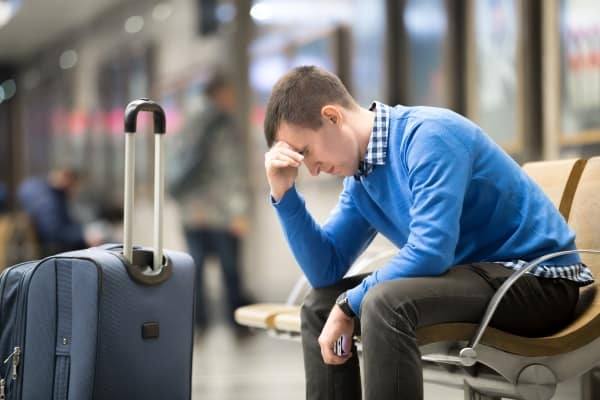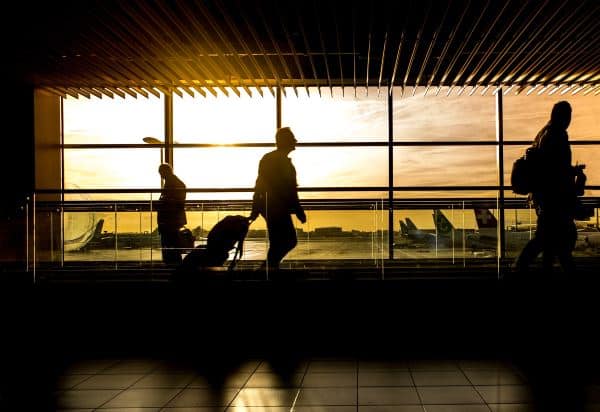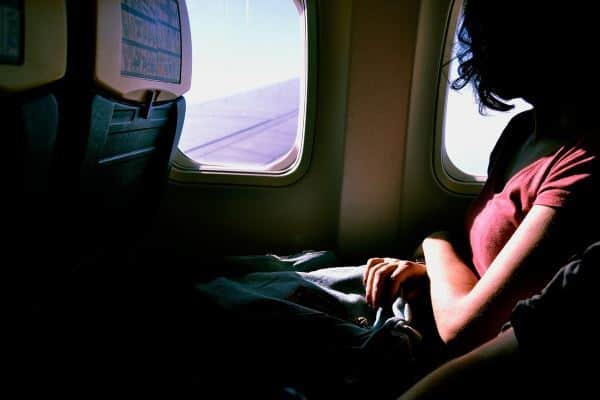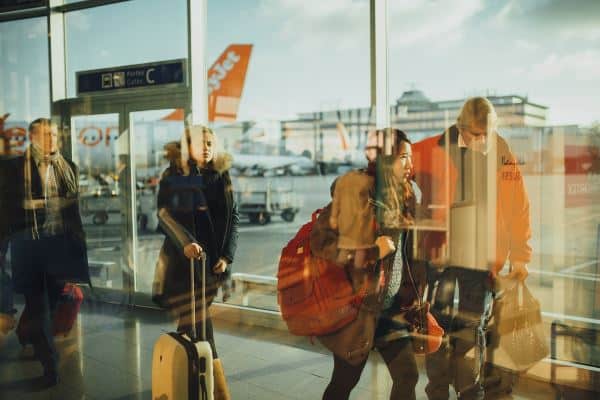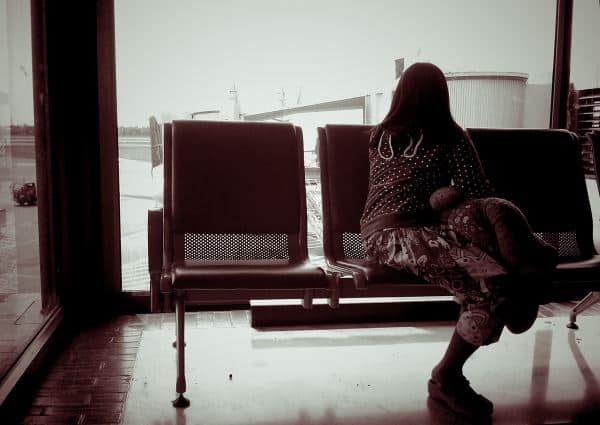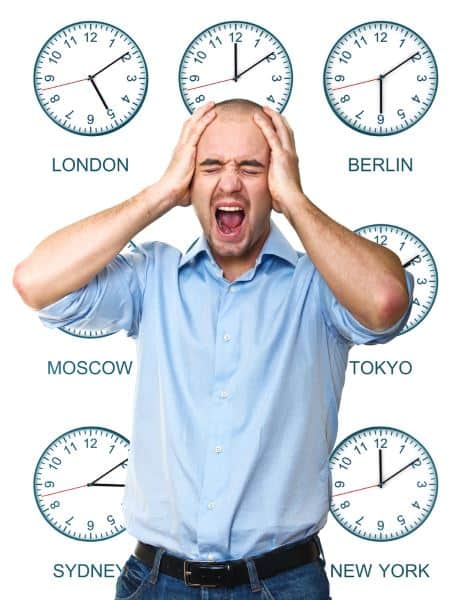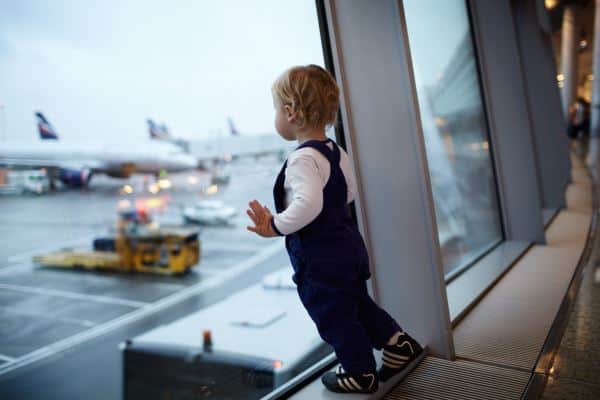What is jet lag exactly? Jet lag, also known as desynchronosis, is the effect we feel when our circadian rhythms are slowed down to adjust to time changes. After traveling for a long time over long distances, your rhythm will still be set to your time zone or pattern of sleep, and you may have difficulties determining whether your body should be asleep or awake.
Luckily, this is a temporary condition and can be cured. However, while you’re adjusting, you’re going to feel “off”. Keep reading if you want to know more about what you can do to ease jet lag and learn what exactly causes it.
You may be interested in: The Best Tips for Sleeping on a Plane
Jet Lag and Sleep
Jet lag sleeping can turn out to be a difficult task. The reason why? You just traveled across two time zones and your family wants to party, but all your body wants to do is sleep. This is called jet lag. It can happen to anyone at any age and level of fitness no matter what your health may be. It is usually worsened when you fly east rather than west because you are going to lose three hours of daylight and will get dark quicker before your body can adjust.
Symptoms of Jet Lag
Besides your normal feeling of fatigue and possible insomnia, there quite a few other symptoms that can come along with this disorder such as:
- Confusion
- Diarrhea
- Indigestion
- Constipation
- Anxiety
- Sweating
- Dizziness
- Malaise
- Coordination issues
- Heartbeat irregularities
Usually, people don’t need to be medically treated for jet lag, unless you have severe symptoms that require a prescription medication. Generally, if your symptoms last more than a few days, you should consult a doctor.
Jet Lag Tips For Dealing With It
Jet lag can’t be cured right away, but there are certainly some roads that you can take to get your schedule back on track.
Melatonin
Melatonin is a naturally occurring hormone in your body that regulates your sleep and wake cycle. This hormone will rise in the mid-to-late evening and remain at a high and steady level for most of the night. If you take supplements before you are supposed to go to bed where you usually reside, it may kick your body’s original cycle back into gear. Studies have shown that melatonin can help get your biological clock back to where it’s supposed to be. But before considering to have one, make sure to consult your doctor.
Before You Hit The Plane
You can take some precautionary measures before you get on the plane to prepare for the time change:
- Rest up beforehand
- Go to bed one hour earlier if going east each night beforehand and one hour if you’re going west, unless your trip lasts 2 days or less.
- Sleep when it’s nighttime on the plane. Sleep masks, headphones, and earplugs might help with noise and lights.
- Drink water on the plane to avoid dehydration.
After You Arrive
After you have arrived at your destination, here’s what you can do to help with the jet lag:
- Change your schedule to the new time as soon as possible. Try to stay awake until your normal bedtime if you can and get up at your normal time.
- Consider light exposure.
- Caffeine is your friend. This will help you stay alert the day after you arrive and can help your body adjust.
Jet Lag Effects
The main effect of jet lag sleep disorder is on your circadian rhythm. Your circadian rhythm is your sleep and wake cycle. It is controlled by your hypothalamus and is responsible for telling your body when it’s time to go to sleep and wake up. It works the best when you have good sleep habits like going to bed and waking up at the same time each night. Your rhythm works at a 24-hour schedule and uses sunlight to determine how much melatonin your body produces. If your schedule is off, your melatonin levels will be as well.
Jet Lag Cures
Jet lag cures are actually quite simple and pretty well known. One way that you can cure this temporary sleep disorder is to take in all of the bright light you can. This is one of the most important environmental cues when it comes to training and resetting your circadian rhythm. You can use light boxes to shift your rhythm slowly towards the destination time that you’re traveling to. If you can’t get your hands on a light box, spend as much time outdoors as you can.
Taking melatonin supplements, or jet lag pills, are another good way to reset your clock. We talked about this a little bit earlier as well. These supplements are part of a naturally occurring hormone in your body and can help control your sleep and wake cycle. It’s best to use it as a phase-shifter rather than a sleep aid, though. You should also take it in lower doses to shift your clock rather than higher doses. The higher doses work as a sedative, basically. Again, before considering it, make sure you consult your doctor.
One last cure for this is to go on a mini-fast. A recent study done by Harvard Medical School suggests that eliminating any food on the way to your destination can help your body’s clock adjust to the new time zone.
You may want to read: The Best Sleep Aids for Flying
Jet Lag Sleep Calculator
What on earth is a jet lag calculator, you ask? Well, it’s basically a calculator that will determine your plan if you’re flying or traveling through time zones. The calculator works out a plan for you using the number of time zones that you cross, the direction you’re going and your sleep pattern.The number of time zones tells the program how many hours behind or ahead your body will be. The direction is used to work out how many hours your body can move each day. Once you enter your details such as where you’re traveling to and from and the date, the calculator will generate your plan, pretty much telling you when you can and can’t sleep.
Jet Lag and Kids
If you didn’t think jet lag could get any worse, it can. Traveling with a toddler can be hard enough and when it comes to interrupting their sleep, it’s like the apocalypse. Luckily, there are a few ways to help prepare for and deal with your child and their possible or current jet lag- because nobody likes a cranky kid.
-
Consider Age
The age of your child heavily affects the potential for jet lag. Babies who are younger than 2 months don’t have a cycle yet, so jet lag won’t have an effect on them. Kids who are 2 to 5 years of age will have regression. As the kids get older, they can make adjustments, as well as adults, do.
-
Prepare Them
Before you leave for your trip, it’s important that you talk to your child about jet lag and the effects that it can have on them. It’s best to teach kids who are old enough to understand that they are about to have some sleep difficulties. It’s best to adjust their bedtimes before the trip by up to half an hour every few days to start getting them prepared for the change.
-
Choose The Right Flight
Choose a flight that’s going to interfere with your child’s sleep schedule as little as possible. If you can’t, you may have to use some methods to convince them that it’s night time and that they need to go to sleep. You can get them some sleep lotions, a little bit of melatonin, a book, earplugs, a sleep mask, a comfy blanket, etc.
-
Plan for The Landing
As you arrive, you should remind your kids that there’s a time change. This will help reduce confusion. You should also communicate with the family you are staying with if that’s the case. Let them know that your children may have difficulties going to sleep for the first few nights. It’s best to communicate openly about jet lag and the effects it can have on the kids. If you’re in a hotel, consider ordering in to avoid leaving with cranky kids.
-
Get Some Help
If you are traveling with a spouse or friend, go on double duty. If you have the money, travel separately to break up the blow that jet lag can have on two kids. You can also take flights at different times or days to avoid the same situation. If money is an issue, just make sure that your partner is on board to help when dealing with the effects of this sleep disorder. You split the duties, help one another, and make sure the kids understand.
Conclusion
As you can see, jet lag can have a serious effect on your body. It is going to mess with your circadian rhythm, it’s going to make the kids cranky, and it may even make you cranky. It’s a pretty inconvenient thing to have to deal with. However, if you prepare yourself with that calculator, it may make your trip a lot easier. Remember to stock up on the melatonin, sleep masks, and earplugs to make the flight or trip better.
